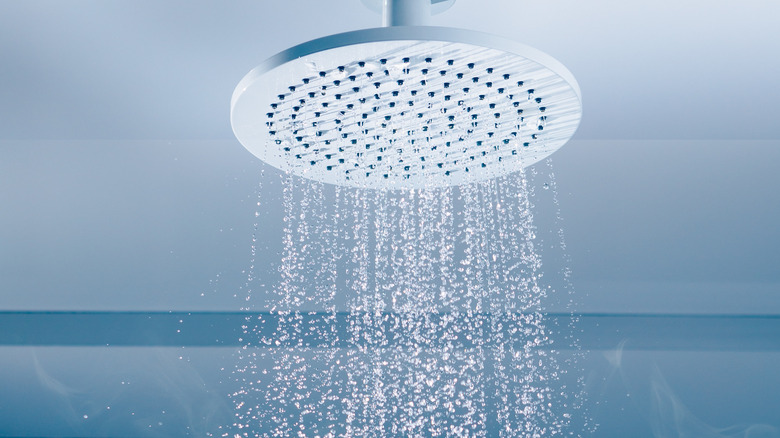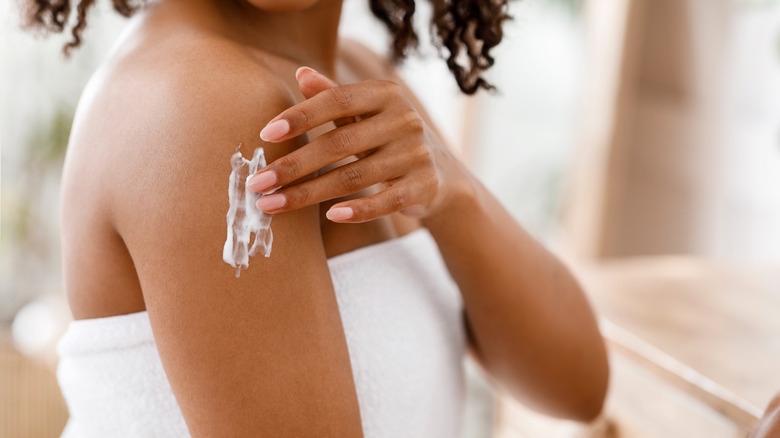
There’s nothing quite like a refreshing shower. In the morning, it’s an invigorating wake-up; in the evening, it’s a relaxing wind-down. It’s the perfect de-grubbing activity after going to the beach or working out. It’s even a great place to have an ugly cry — psychologists say we’re most comfortable crying when we’re both at home and alone (via Smithsonian). With all its benefits, it may seem that there’s no bad time to get clean. But if you’re used to hopping into the shower right after breakfast or dinner, experts say it may be time to reschedule your bathing habits.
Per Ladders, showering in warm water creates what’s known as a hyperthermic reaction — a fancy way of saying your body temperature elevates slightly. This helps make you feel relaxed and also gets your sweat glands busy removing toxins (which the water and soap then wash away). But eating also raises your internal temperature as blood is diverted to the digestive tract. Experts say that eating and showering within 20 minutes of each other may create a temperature overload of sorts, making it harder for your body to digest efficiently. The result: bloating, cramps, and sluggishness.
This effect may be most noticeable after a meal that’s either very heavy or loaded with carbohydrates and fat, so you might not have a problem if you bathe after having a fruit plate for breakfast instead of bacon and eggs. Or opt for a cold shower, which doesn’t raise your core temp and may actually help you burn fat.
There are other ways to make your shower more effective

Time is a factor for showering in other ways, too. Ideally, you should be in the shower for around five to 10 minutes if you’re just doing a basic body scrub, or no longer than 15 minutes if you’re also washing your hair or shaving (via Insider). Longer than that, and you risk removing your skin’s natural moisture barrier, which can put you at risk of cracked skin, blemishes, ingrown hair, and other woes. It’s important to follow up a shower with a good body and facial moisturizer to seal in the oils that keep your skin healthy. Too-hot showers can add to the damage, so go for warm or cool bathing instead. (Colder showers feel better on a hot day, anyway.)
If you tend to be generous with the soap or body wash in the shower, it’s time to rethink your habits. Dermatologists explained to Page Six that using too much soap can lead to serious skin conditions such as eczema, psoriasis, and rosacea. In fact, you may only need to use soap on specific areas — such as the feet, armpits, and groin — and simply rinse off the rest. Don’t wash your face more than once or twice a day, and if your skin is sensitive, try skipping the cleanser. One woman said that her problem acne went away when she started using just a wet washcloth on her face.
Source: Read Full Article
